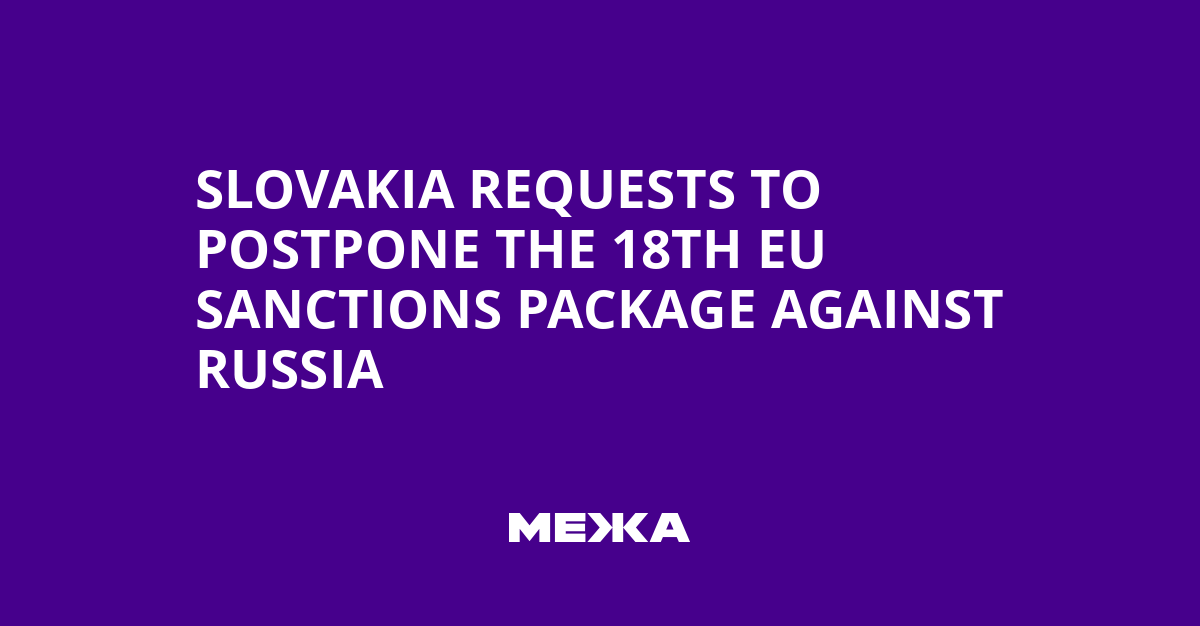On June 27, during a meeting of European Union ambassadors, Slovakia requested a postponement of the adoption of the 18th package of sanctions against Russia. The main reason for this decision was the need to find an optimal solution to mitigate the negative consequences that could arise for Slovakia as a result of the new RePowerEU legislation.
This information was confirmed by the Ministry of Foreign Affairs of Slovakia.
According to the Ministry of Foreign Affairs, Prime Minister Robert Fico informed his colleagues about the country’s position during the European Council meeting held on June 26 in Brussels.
RePowerEU is an initiative of the European Commission aimed at reducing dependence on Russian fossil fuels by 2030 in response to Russia’s aggression against Ukraine, which began in 2022.
Earlier, a senior EU official who wished to remain anonymous reported that EU ambassadors failed to adopt the 18th sanctions package due to Slovakia’s position. This package was planned to be considered on June 27 at the EU ambassadors’ meeting.
On June 26, Slovak Prime Minister Robert Fico stated that he would veto the 18th sanctions package if it was not postponed. He expressed disagreement with the proposal to stop importing Russian energy resources.
Contents of the EU’s 18th Sanctions Package Against Russia
In June 2025, the European Commission presented the 18th sanctions package, which includes new restrictions for Russia’s energy and banking sectors. The sanctions also cover transactions related to the Nord Stream project.
Energy Sector and Gas
All transactions related to Nord Stream 1 and 2 are prohibited: no EU operator will be able to conduct deals through these pipelines, either directly or indirectly.
A price cap on oil products has been set, lowered from $60 to $45 per barrel, to make it harder for Russia to generate revenue.
The “shadow fleet” has been expanded: 77 additional tankers involved in illegal oil transportation have been added to the sanctions list.
The import of oil products made from Russian oil is banned to prevent sanctions evasion through third countries.
Financial Sector and Banking Operations
The SWIFT restrictions have been transformed into a complete ban on transactions involving 22 Russian banks and third-country operators that assist in circumventing sanctions.
Sanctions have also been imposed on the Russian Direct Investment Fund (RDIF) and its subsidiaries.
